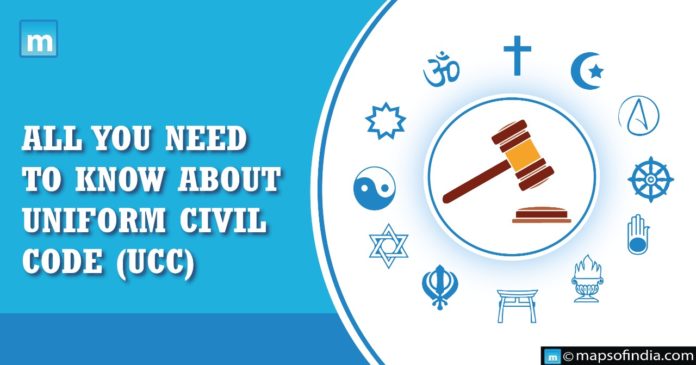In recent times, the Uniform Civil Code (UCC) has been a point of contention between the government and some religious groups. This code even found its way into the Bhartiya Janata Party’s (BJP) 2019 manifesto, or Sankalp Patra as the party calls it. Recently, the demand for UCC has been gaining more traction as Uttarakhand Chief Minister Pushkar Singh Dhami announced that his newly formed government has decided to implement the Uniform Civil Code (UCC) in the state. “We have decided to implement the Uniform Civil Code in the state. The State cabinet unanimously approved that a committee (of experts) will be constituted earlier and it will be implemented in the state. This will be the first state to do so,” ANI quoted Dhami as saying.
What is Uniform Civil Code?
A Uniform Civil Code is the proposal that would provide one law for the entire country. It means to replace the personal laws based on scriptures and customs of each major religion with a standard set governing every citizen and will apply to all religious communities. Article 44 of the Indian Constitution states, “The state shall endeavor to secure for the citizens a uniform civil code throughout the territory of India”.
What is UCC needed?
The main objective of implementing Article 44 in the Indian Constitution, according to Article 37 of the constitution, is “to address the discrimination against the vulnerable groups and harmonize diverse culture groups across the country.”
History of UCC
The origin of the UCC goes back to colonial India when the British government put forward its report in 1835, pushing the need for uniformity in the codification of Indian law relating to crimes, evidence, and contracts, explicitly recommending that the personal laws of Muslims and Hindus be kept out of this codification.
Due to increased legislation dealing with different religions, the British rule forced the government to form the B N Rau Committee to codify Hindu law in 1941. The commission’s task was to figure out what was necessary for Hindu laws.
Later in 1985, the UCC again came into focus during the Shah Bano case, which brought the Muslim Personal Law under the lens, as no reforms had been made since 1937 in the law.
Advantages of UCC
- The laws will become less complex, as there are already many religious laws, including marriages, inheritance, adoptions, and successions. Having a single law irrespective of an individual’s faith will make it easier for everyone to understand the procedure.
- The other main focus of the UCC is to protect the vulnerable sections of society, including women, children, and religious minorities.
- There will be common law for every country’s citizens, irrespective of their faith.
Objections raised against UCC - The majority of minor groups see UCC as a way of suppressing their religious freedom the majority.
- Article 25 of the constitution states, “Freedom of conscience and free profession, practice, and propagation of religion,” which seems to be violated as the UCC leads to the abolition of personal law boards like Muslim law boards.
- It will be difficult for the government to get the support of various personal law boards and religious groups to agree to this.
Which states in India have implemented UCC?
Goa is the only state in India that has a uniform civil code. However, many other states are working on the idea of UCC.





